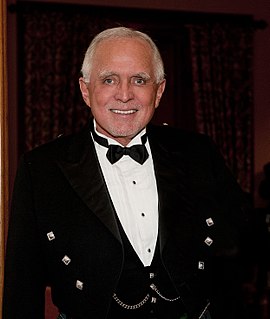A Quote by Albert Ellis
This, perhaps, goes to show that conditional self-esteem, as I have said for many years, is an insidious, real sickness, so much so that even Buddhists carelessly sneak it in and sometimes encourage their clients to achieve it.
Related Quotes
For that again, is what all manner of religion essentially is: childish dependency. If something is irrational, that means it won't work. It's usually unrealistic. People don't just get upset. They contribute to their upsetness. People have motives and thoughts of which they are unaware. Rational beliefs bring us closer to getting good results in the real world. Self-esteem is the greatest sickness known to man or woman because it's conditional. The art of love is largely the art of persistence.
Perhaps the most extraordinary popular delusion about violence of the past quarter-century is that it is caused by low self-esteem. That theory has been endorsed by dozens of prominent experts, has inspired school programs designed to get kids to feel better about themselves, and in the late 1980s led the California legislature to form a Task Force to Promote Self-Esteem. Yet Baumeister has shown that the theory could not be more spectacularly, hilariously, achingly wrong. Violence is a problem not of too little self-esteem but of too much, particularly when it is unearned.
I find that goal setting, when done this way, leads to goal achieving. The chronic failure to achieve goals lowers self-esteem. Show me a failure to achieve a goal, and usually I can show you the violation of one or more of the above criteria. Imposed goals, vague goals, and unrealistic goals tend to produce only partial successes and outright failures.
It is a mistake to look at someone who is self assertive and say, "It's easy for her, she has good self-esteem." One of the ways you build self-esteem is by being self-assertive when it is not easy to do so. There are always times when self-assertiven ess requires courage, no matter how high your self-esteem.
I'm not saying that I don't have skills. I'm saying I don't feel like I can use my skills to achieve self-esteem. I feel like it's cheating. I think that I should have self-esteem simply because I am a human being who deserves love and deserves everything just as much or just as little as everyone else.
Stressing the practice of living purposefully as essential to fully realized self-esteem is not equivalent to measuring an individual's worth by his or her external achievements. We admire achievements-in ourselves and others-and it is natural and appropriate for us to do so. But that is not the same thing as saying that our achievements are the measure or grounds of our self-esteem. The root of our self-esteem is not our achievements but those internally generated practices that, among other things, make it possible for us to achieve.

































